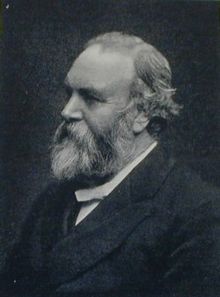Bible Knowledge Graph
James Orr
- Entity ID:
- james-orr
- Long Name:
- Orr, James, 1844-1913
- Short Name:
- James Orr
- Disambiguation String:
- Scottish theologian
- Entity Type:
- person
- Entity Subtype:
- author
-

- Wikipedia
- Summary:
-
Born in Glasgow and educated at the university there, Orr went on to the United Presbyterian Church's college in Edinburgh. After ordination he ministered in the Scottish border town of Hawick (1874-1891). He was then appointed professor of church history in his old college, transferring in 1900 to the Glasgow college. There he taught apologetics and systematic theology-with classes augmented by the union between his church and the Free Church (a development in which he played a prominent part).
Orr was critical of established religion. "A State Church", he declared, "speaks in bonds; its guns are spiked". Ye he himself came under fire (from conservatives in the continuing Free Church for teaching a modified Calvinism and for holding a defective doctrine of the inspiration of Scripture. The allegations were open to question; from another Presbyterian church came a different assessment: "Some make Christianity a doubtful thing", said the Original Secession Church magazine. "Dr. Orr made it to many a stable, imperishable, reliable thing."
Orr became one of the best-known theologians in the English-speaking world. He had four lecture tours in North America. One of his books, The Virgin Birth of Christ (1907), came out of lectures given in New York to the Bible Teachers' Training School. His many publications include The Christian View of God and the World(1893), The Progress of Dogma (1901), The Resurrection of Jesus (1908), and The Faith of a Modern Christian (1910). To many scholars he is known as the general editor of The International Standard Bible Encyclopedia, a comprehensive and conservative work durable enough to have undergone a complete revision nearly seventy years after Orr's death.
- Viaf ID:
- 46835069
- DB Pedia ID:
- James_Orr_(theologian)
- Biblical Status:
- Not Biblical
- Is An Individual:
- Yes
- Is Published:
- Yes
- Birth Date:
- AD 1844
- Death Date:
- AD 1913
- Occupation:
- Scottish theologian
- Nationality:
- Scottish
- Works:
